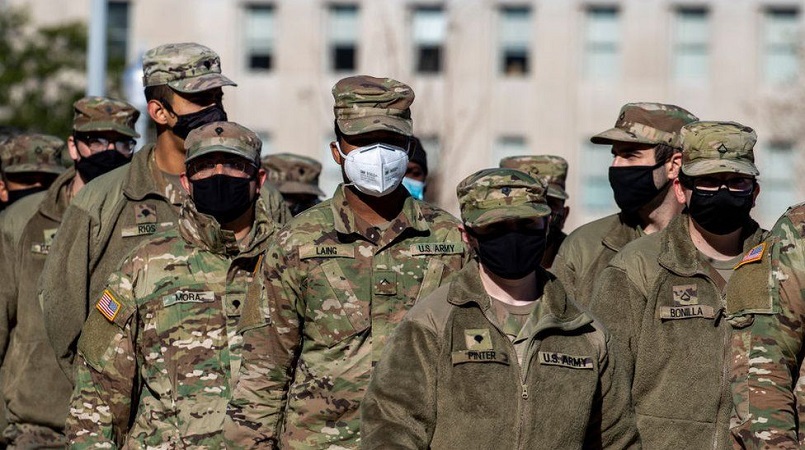
The US is to deploy hundreds of unarmed National Guard troops to Washington ahead of the arrival of trucker convoys protesting against pandemic restrictions.
Defense Secretary Lloyd Austin approved a request from the District of Columbia government and the US Capitol police for 700 troops.
Around 25 separate convoys plan to join forces and converge on the nation's capital, to replicate recent protests in Canada.
The stand-off there paralysed Ottawa for days.
The National Guard troops will man traffic posts and "provide command and control" from Saturday until 7 March, a statement said.
Some 50 "large tactical vehicles" will be stationed 24 hours a day, it added. The troops will not carry firearms or take part in law enforcement.
The US Capitol Police said several trucker convoys were planning to converge on Washington around the time of President Joe Biden's State of the Union address on 1 March.
One - the People's Convoy - has already raised almost $500,000 (£369,000) through online crowd-sourcing to fund the truckers' efforts. It will cross the country from California.
One of its organisers, Brian Brase, told Reuters wherever the convoy stops, it is "not going anywhere" until its demands - which include an end to mask mandates and vaccination requirements - are met.
A second group, from Scranton, Pennsylvania, said it aimed to shut down the Beltway, the main road that surrounds Washington.
It spokesperson Bob Bolus, told a local Fox News TV station, it would be like "a giant boa constrictor....that basically squeezes you, chokes you and it swallows you.
"That's what we're going to do DC," he said.
However, a Reuters journalist reported only one truck - Mr Bolus' - was so far participating, along with five smaller pick-up trucks and two smaller vehicles.
Erica Knight, spokesperson for a third group, the American Trucker Freedom Fund, said she believed there was "no need" for a heavy police or National Guard presence as they did not want to disrupt daily life, but instead meet with members of Congress "to try and move some policy change rather than just gather and protest like Canada".
